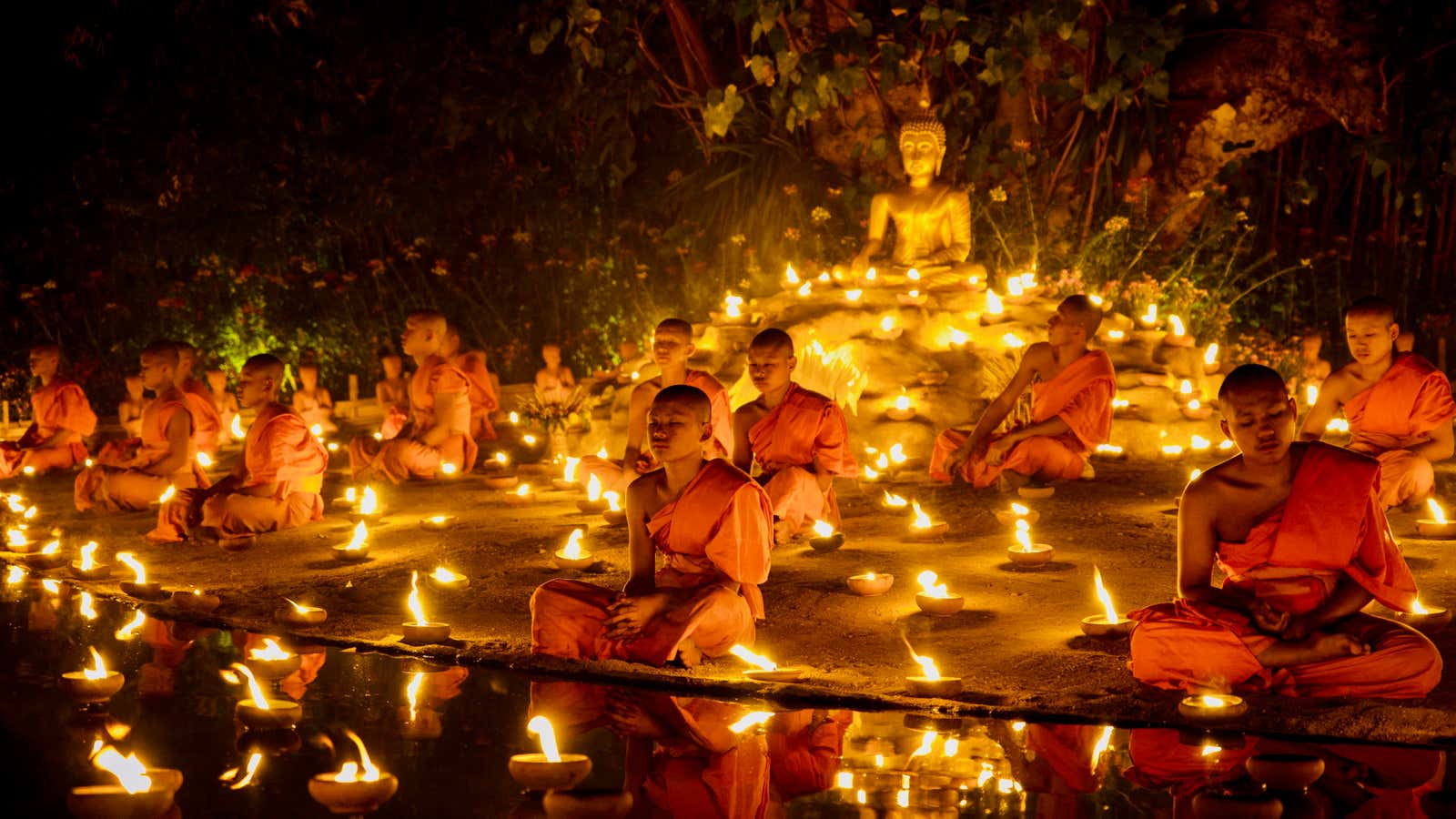Ping! This just in. And also that. And and and.
Living in our connected tech culture can feel like a race going nowhere fast. We’re burned out (now an officially recognized condition per the World Health Organization) and overstimulated, which is why people are increasingly seeking to retreat into silence.
Twitter founder Jack Dorsey is one of the higher-profile people to take time off in order to tune out the fervent buzz of an always-on world and tune in to themselves. Dorsey late last year went to Myanmar, where he spent 10 days gazing inward in silent meditation.
While the semi-starved tech billionaire might not be the likeliest of lifestyle gurus, he is on to something.
The writer William Burroughs theorized that language is a virus infecting our minds. If that’s the case, training yourself to live with your brain and its relentless inner discursiveness can be the difference between mental health and madness. But where, if you can’t get all the way to Myanmar, do you go to do it?
Alan Ni, a former Google product manager in California, had that same question. Ni was feeling overwhelmed by all the messaging and communication his job involved—coordinating between engineers, designers, and developers—and felt he needed to manage his stress, so he took up meditation. He used his vacation days to go on a 10-day silent retreat and it changed him.
Ni realized he could find relief in the silence, and in time he left his job to do something new. “After quitting my job at Google, I went on multiple silent retreats, which changed my life and helped me establish a daily meditation habit,” Ni tells Quartz. “When I was searching for retreats, I realized there wasn’t an easy way to find a meditation retreat—when I saw many people on Reddit had the same issue I decided to make the website myself.”
Meditating Redditors offered to pitch in with design, programming, and product marketing help, as well as suggestions for silent retreats that they had attended. With this assistance, Ni created RetreatBase, a site that went live on May 29, offering information about meditation locations in the US. (He plans to expand to include locales worldwide.) Some of these retreats are for practicing total silence for a set amount of time while others may involve an occasional exchange.
There are currently more than 750 retreats at 150 centers to choose from, all vetted by Ni and an assistant. “Quality control is super important to me because a lot of the people on our platform will be first time retreat-goers,” Ni told the Buddhist publication Tricycle.
Indeed, silent meditation is not just for experts who are steeped in Buddhist traditions. It is for anyone who is willing to sit with themselves for a while and discover what’s going on in their minds when all the distractions are unavailable and the constant ambient noise has been briefly hushed.
As new meditator Dale Hrabi explains in the Wall Street Journal (paywall), it’s not always easy, though perhaps that is the point. During one session you may imagine you’re a Zen master, while later the same day it may feel like torture to sit and think—or try not to think as the case may be. “My legs cramped; my foot dozed off. Just when I’d successfully vacated my head of thoughts, entirely focused on breathing, my neglected ego would butt in,” Hirabi writes of his experience.
Yet contending with the self and no one else is precisely what many of us need right now, if only to get better at wisely dividing our attention when we return to chatty society. “Retreats are out of reach from the daily stressors of work and obligation, void of daily addictions like smartphones and TV, and clean of all other distractions,” Ni’s new site explains. “This provides the perfect environment to deepen your practice and become more introspective.”
In other words, a meditation retreat offers a change of pace with longterm payoffs that traditional vacations do not offer. Spend time with yourself and you may wish you’d escaped to Disney World’s distractions instead, at least some of the time. But you’ll probably also find, after a while, that your mind isn’t an enemy to hide from and that you can deal with your feelings. You can take what you learn into your everyday life, and the intensity of the concentrated experience can help you stay grounded when you’re back at the daily grind.
Getting to know yourself is the most important networking event you’ll ever attend.
